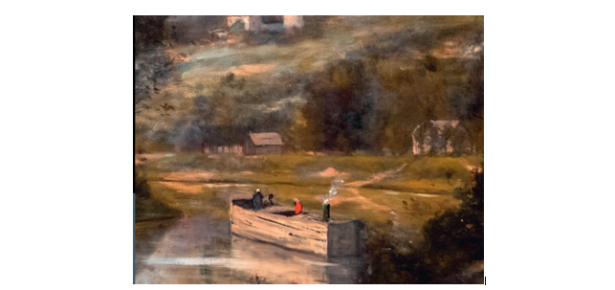
My friend Heather Dubrow, critic and poet, turned to me and said: “The text as enemy.”
She was commenting on a talk just given by a prominent literary scholar who championed literary criticism as a practice of unveiling prejudices, of revealing cultural bias, injustice and contradictions, and of cultivating distrust of language. Literature, in the speaker’s telling, was an intricate set of representations of personal and shared beliefs in history, meant to please but also always strategic, a “rhetoric” in the nefarious, mostly modern sense of the term. A literary critic is above all savvy, able to discern those strategies, and delights in their uncovering.
Heather meant her comment to be ironic: the novel, the poem, the story and the play should not invariably be our “enemy.” Today she is perhaps not alone in rejecting this distrustful view of literature, but her succinct rejoinder to a common current description of what literary scholars and critics do has stayed in my memory. It expresses my own sense that liking a book, being moved by its language, allowing it to do what it means to do, is a good thing. Allowing literature to fully occupy our attention, our affect and our intelligence, might be one of the great privileges of our condition as human beings.
This willed credulity is not a surrender of our critical faculties, to the contrary. I deal mostly with literature in history, and understanding how and what its language means within a culture historically different from my own requires critical effort. But I also want to find out how the literature that takes over my attention does what it does. That also requires critical effort and focus. These types of effort in no way reduce my intense pleasure at reading and rereading these texts that are not my enemy.
I began writing my book, Lyric Humanity from Virgil to Flaubert, in May 2020. As so many, we were isolated, less so than in other countries, but isolated relative to our previous circumstances, unable to travel and spend time with our family and friends. Spending time every day with a series of books I thought I knew well and, at least, knew to be superb, was a slightly monastic way of coping, as if I were enacting the 19th-century aestheticism of European literary culture. The daily ritual did not lead to ever vaster reading, but to more intensive reading. I had time to figure things out, as it were. Why is this passage so affecting? Why can I read these sentences so many times over and never fail to experience pleasure? Why can I read these same sentences repeatedly and keep thinking about them, discovering something about them?
The books and the passages within them, poetry or prose, that most lend themselves to this kind of experience consist of lyric, or contain some lyric episodes. Defining what sets them apart, not as a generic choice, but as a set of stylistic, rhetorical or linguistic choices, came to be one of my objectives. So much good work has been done on the lyric genre – from Gustavo Guerrero to Jonathan Culler – that the guideposts have been set out for us. My own are in part theirs – epideictic (especially its component of praise), apostrophe, and the drawing to the present instant – and in part since I consider lyric passages in prose as well as lyric poetry, I included reliance on detail, on reasoning, on suspension of plot movement, but movement through space, some of which go against our common notions of lyric. Especially, I am convinced that despite our Romantic and modern assumptions, and despite the promptings of my isolated circumstances, lyric is not most effective as a vehicle for subjectivity or the wanderings of an immense soul (which, it should be emphasized, I am far from possessing).
Accounting for some of the techniques of lyric, as evident in the most famous literature of the Western tradition, is not the same, however, as accounting for their effectiveness. This is where the (now much contested) link between “letters” and humanness, a link central to European early modern humanism, became relevant to me. The techniques that lyric and lyric episodes rely on seem to allow for responses that are in turn features of human beings. We have heard a lot about the relation between literature and empathy, and empathy is certainly one of the features that lyric can elicit. But attention to detail and equity is another; the use of reason, the capacity for a certain kind of happiness, and the salvific recourse to cultural memory are others. All of these capabilities are in some form present in a notion of the human we have inherited and they are actualized in lyric representations, lyric scenarios in poetry and prose.
If the text is not an enemy, then, is it a “friend”? When we read, do we engage in friendly conversation with characters and authors, in a version of Wayne C. Booth’s formulation? My book does not assume that a book is a person, or that the effect of lyric is primarily transmitted through our imagining engagement with other persons, be they the author or her characters. Settings and actions can be just as effective as representation of speech or experience. Literature has a panoramic power to induce adherence, and the pleasure of adherence, to a world that is meaningful to us even if it is not ours.
Wayne C. Booth, The Company We Keep: An Ethics of Fiction, 1988.
Jonathan Culler, Theory of the Lyric, 2015.
Gustavo Guerrero, Teorías de la lírica, 1998.
Latest Comments
Have your say!